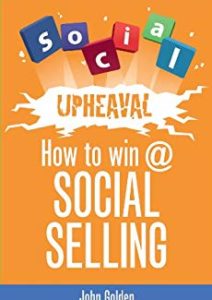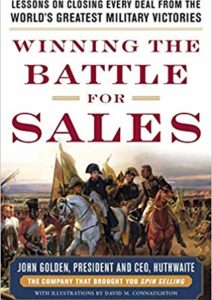Sales. It’s right at the center of a company’s revenue strategy. Without sales, revenue doesn’t happen at all. With the right sales team and the right strategy–and of course the right product or service–it’s a rocket ride right out through the top.
But what comes before all that? You guessed it: sales training. Join us in this ebook as some of the world’s top sales experts weigh in on this incredibly important topic.
Part 1
What is Great Sales Training?
Chapter 1: Building a Selling Organization–Not Just a Sales Department
by Shawn Karol Sandy
Why not build a whole selling organization based on a collective culture that coaches, encourages and rewards behaviors that contribute to the financial goals of the organization?
Chapter 2: One Size Does Not Fit All
by Elinor Stutz
One reason sales training results are often dismal is that most trainers act as if they are school teachers. The student variances are never taken into account.
Chapter 3: Align Sales Training to Company Strategy
by Roy Osing
Sales training is a strategic issue; it should always be driven by what the organization’s strategy demands.
Chapter 4: Transform Terrible Training: Excite, Customize, and Build a Long-Term Roadmap
by Lisa Magnuson
Spending that hard-won currency on over-simplified, tedious, or uninspired training sessions will push your revenue-generating energies toward the red zone.
Chapter 5: 8 Signs My Rep Onboarding Program Is Broken
by Lauren Bailey
Are you an unwitting accomplice to rep abuse? Let’s find out. Here are some top signs that your new hire training might be broken.
Chapter 6: Great Sales Training Must Reflect Buyer Behavior
by John D. Elsey
Candidly, we see this with our own customers. They’re frankly more skeptical. We need to be more effective at articulating the value of our products and services, and the type of return on investment they may get.
Part 2
Effective Sales Training Content
Chapter 7: The All Important Conversation–Not Just With the Customer
by Bruce Wedderburn
The vast majority of the sales training that’s out there now is focused around the conversation between the salesperson and the customer. But we have found that that’s only one of three separate conversations that are critically important to success.
Chapter 8: The Value of Sales Role Play—5 Directing Tips
by Julie Hansen
Adopting a few directing tips may not make your reps learn to love role-play, but they will learn how to perform more effectively when they step onto the business stage.
Chapter 9: Learning to Ask the Right Questions
by Jermaine Edwards
Start with the end in mind and write down questions that meet the goal you have, the feeling you want your prospect to have, and the reasonable incremental action they could take.
Chapter 10: Help Salespeople Learn from the Best Teacher of All—the Customer
by Jeffrey Lipsius
The source of a salesperson’s learning should be customer-derived rather than trainer-derived. Higher performing salespeople observe their customers more keenly.
Chapter 11: How Does Sales Training Turn One into a Sales Virtuoso?
by Nikolaus Kimla
The problem is that most salespeople are given product knowledge and some theory, then perhaps some coaching, but it often stops after the rep has had some sales success. They never get the chance to practice their craft and consistently improve their performance, as an artist does.
Chapter 12: Sales Training Means Learning and Development
by Jane Gentry
50 percent of sales managers think that if you got rid of training altogether, it wouldn’t impact the performance of their sellers. They might be right, because we have not learned yet that by and large it’s development that changes behavior.
Part 3
Continuous Sales Training—Sales Coaching
Chapter 13: Sales Coaching Excellence Revisited
by Matthew McDarby
Effective sales coaching is perhaps the key differentiator that separates great sales organizations from average ones.
Chapter 14: How to Become a Great Sales Coach
by Kevin F. Davis
To improve the amount of time you spend coaching, you need to take back control of your time. To improve the quality of sales coaching, you need to refocus yourself where your involvement can have the greatest impact over the long term with your salespeople.
Chapter 15: Sales Coaching = Success Coaching
by Monika D’Agostino
Recent studies have shown that it is essential to train sales managers to ensure top performance of a sales team. When sales managers don’t embrace disciplines, how would they be able to coach and guide their teams?






















Comments